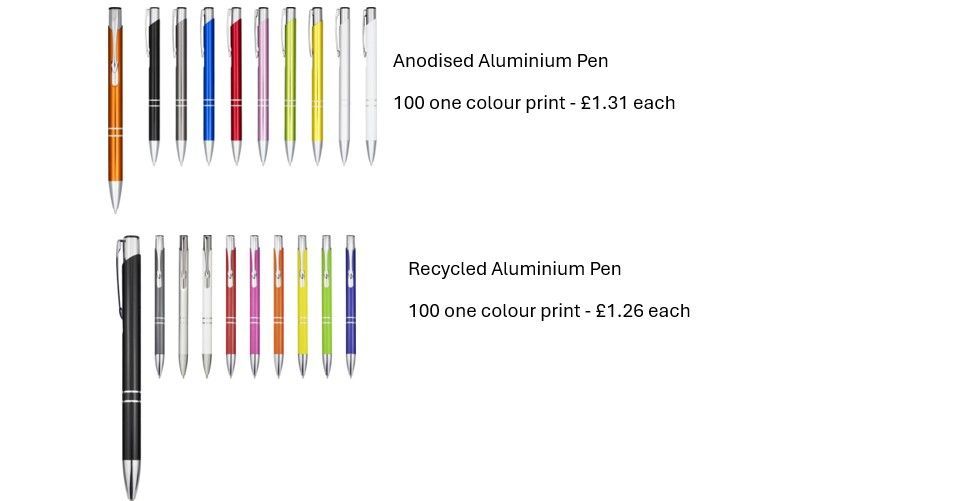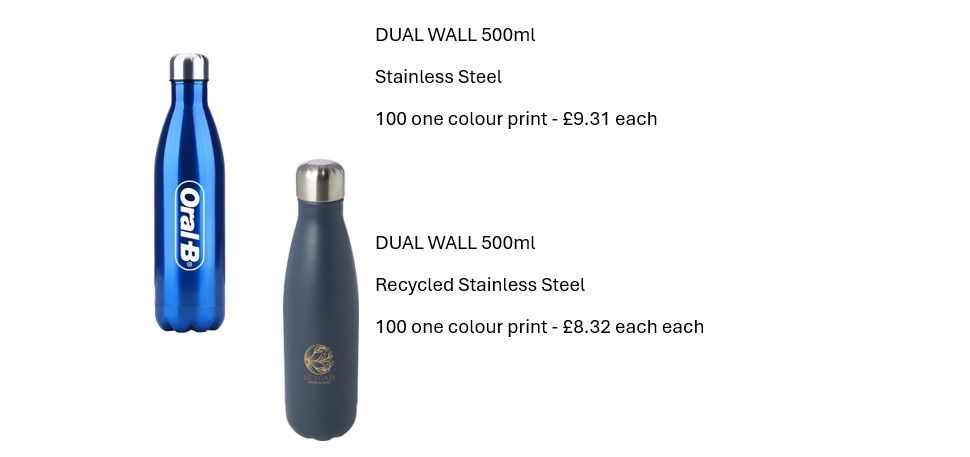What is the price of an ECO promotional product
We surveyed the common branded merchandise and found that eco was not priced higher then conventional merchandise


**Pens**: Two metal pens, including one made from recycled aluminium, were nearly identical in design. Here, the recycled option turned out slightly cheaper, demonstrating an unexpected price point advantage for eco materials.

**Tote Bags**: In the realm of tote bags, I found two options with identical dimensions and capacities. Surprisingly, the recycled cotton version was cheaper than the one made from natural fibres, once again showcasing the savings possible with eco-friendly materials.

**Bottles**: Exploring dual-wall bottles designed to keep drinks cold, I found two stainless steel versions. Despite differences in finish—the recycled steel being matte as opposed to glossy—the eco-friendly variant was cheaper. This price difference did not appear to correlate with the surface finish.

**T-Shirts**: T-shirts presented a more complex comparison due to manufacturing variables such as stitching and material quality. I examined one brand, Roly, and compared their 100% cotton t-shirts (£4.72) with a polyester-cotton blend (£5.70) and a recycled polyester version (£5.62). Despite the recycled polyester being slightly lighter, it remained price-competitive. Opting for 100% organic cotton brought a 20-25% price increase. Yet, when considering embroidery—a more costly decoration method—the organic cotton was actually less expensive overall.

My conclusion is clear: the narrative of paying a premium for eco products no longer holds universally. Current price differences arise more from product features and embellishments than the eco status of the materials. This shift contradicts the advice I've offered over the years. It’s time to embrace the evolving market where eco products offer competitive pricing without the perceived premium.
Join the Conversation
If you're a competitor or supplier, I'd love to hear your thoughts and findings. Feel free to reach out to me directly via email at davidplatt@paviliongroup.co.uk. Your insights would be invaluable. Thank you for engaging in this important discussion on the evolution of eco-friendly products.





